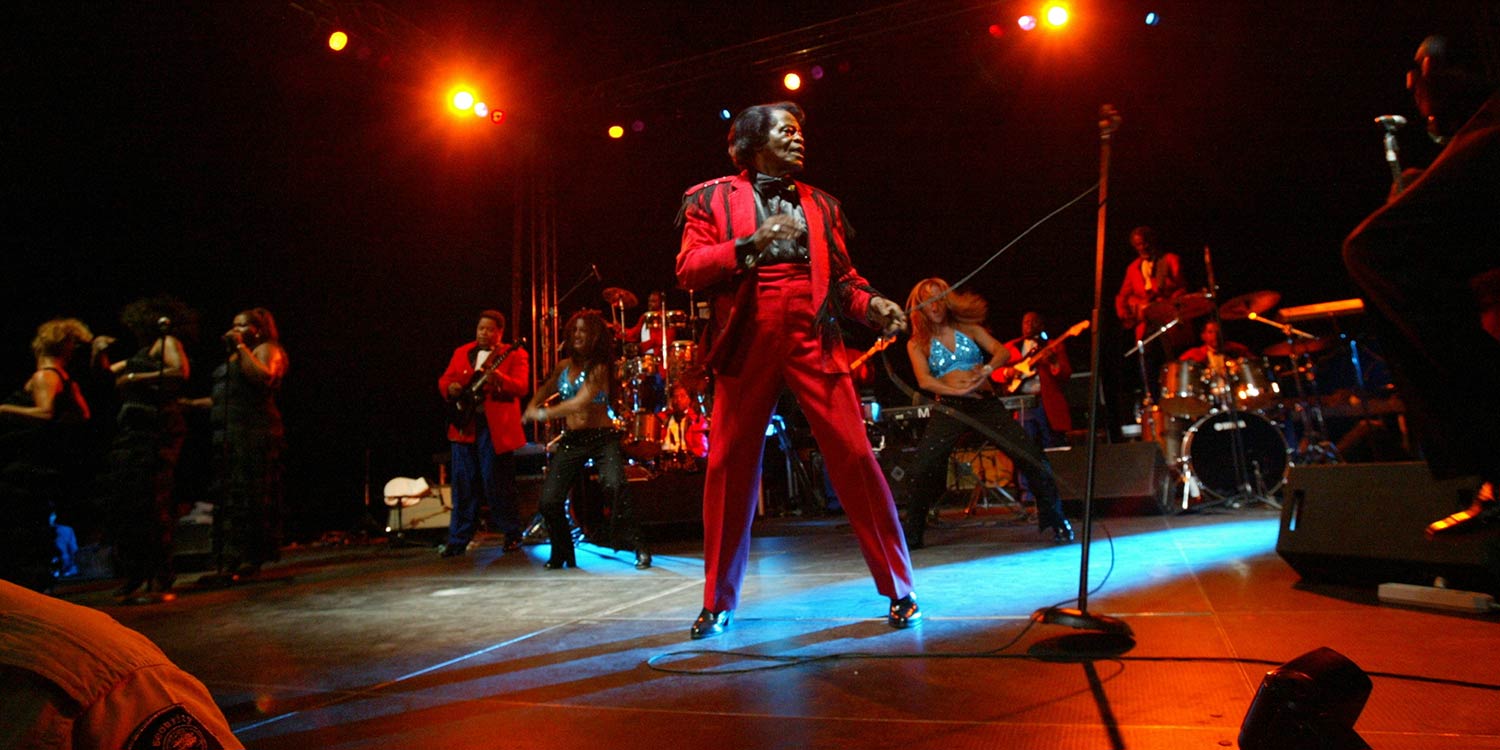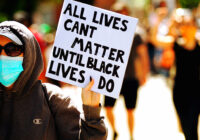“We’d rather die on our feet than live on our knees. Say it loud! I’m black and I’m proud!” James Brown thundered out this line in one of his songs. At the time, Brown would have been called a “negro” — or bogusly dignified with an uppercase N — by most other people. In fact, he probably referred to himself that way even if he was a supporter of civil rights. But even if he believed in the animating principle in his song’s lyrics, he had probably accepted American society’s derogation of blackness to some degree. In fact, he must have. Otherwise why would he challenge it so reverberantly?
“Say It Loud — I’m Black and I’m Proud” was written by Brown and his bandleader, Pee Wee Ellis, and released in August 1968, a few months after the assassination of Martin Luther King. There were arguably other songs that captured the changing social and political climate in America and were better musically. Sam Cooke’s soulful “A Change Is Gonna Come” is one of them, as is Sly and the Family Stone’s “Stand.” But Brown’s use of the word “black” in such a declamatory, defiant way distinguished it as the epochal song.
Slavery
White America’s material and moral right to dominate all others had been beyond question ever since the 16th century, when a nameless Portuguese cleric stepped ashore and invoked divine favor on the New World. It worked: God did bless America. This became not just a land of opportunity but the land of opportunity.

Between 1500 and 1870, over 12 million Africans crossed the Atlantic in chains, with annual totals often exceeding 50,000. The slaves were not black: They were property, chattel comparable with animals of burden. The colonists we would now regard as white did not see themselves as white. The word “white” did not even enter popular usage until the latter part of the 17th century. Its associations with guilt, superiority and cultural arrogance came later.
For the most part, the collective name of the slaves was of no consequence. The term negro was used widely and its several derivatives, including the heinously taboo word we all know but never speak, were used habitually. The rights that white Americans established and maintained in those centuries were beyond question. At least until the 1960s. Then they were interrogated like never before.
In the post-civil rights era, in which negroes were encouraged to aspire rather than just subsist, and achieve rather than survive, old badges of shame were burnished. The reclamation that Brown sang about was not just about the word “black,” but hair, skin, lips and every other physical feature that contributed to the affirmation, “black is beautiful.” This was a popular phrase in the 1960s to repudiate the unspoken belief that everything associated with negroes was inferior or ugly. (Readers will notice I am using the term “negro” designedly at this point in the article.)
During the 1960s, against a background of civil rights, urban riots, the rise of Black Power politics and the emergence of radical leaders like Eldridge Cleaver and Huey P. Newton, negroes discarded traditional ways of collective self-identification and appropriated blackness. I use the verb appropriated with care because “black” had been used for decades as a disparagement, a way whites could put down people they saw as their natural subordinates. “If you’re black get back. If you’re brown, stick around. If you’re white you’re all right” went an old American maxim.

I recall a group tutorial during my doctoral days at the London School of Economics in around 1977. My supervisor, the late Percy Cohen, reminded those who did not already know that “In America, the word black is the preferred description of people previously known as negroes” (I paraphrase). In the UK, the term “colored” was in popular use as an acceptable alternative to the crude sobriquets that circulated. The term black is still perfectly serviceable — it continues to convey respect. Now in the UK, the term colored has either vanished, become one of those excessively fey attempts at politeness or, worse, racism. Black still holds its own.
African American
So, why did the somewhat amorphous and imprecise term “African American” enter our vocabularies? This seemed to reach back through the generations to the days of slavery. Slaves perpetuated a myth of Africa through hymns, folk tales, spiritual songs and other oral narratives. Africa, or rather its myth, has been an imaginative and potent mobilizer of social and political movements, including Negritude and Rastafari, and it continues to fill the diaspora with a force that is, at once, ghostly and living. But did black Americans need it?
In the 1980s, researchers in the UK adopted a version: African Caribbean was and is still used. Again, the term struck me as less satisfactory than the cleverly contrapuntal black, which, of course, takes a term of abuse and fuses it with a new and opposite meaning. Whatever the source of the terms African American or African Caribbean, it seemed retrogressive and returned us to an earlier state.

Is it accurate? After how many generations do you consider yourself effectively detached from your ancestors? I call myself English, though I have an Irish grandfather and a mother named Eileen Sullivan. I realize, being white, my privilege precludes a search for roots, ancestry and my ethnic wellsprings. I also buy the reasons why black people might want ceaselessly to foreground their Africanness and incorporate the land of their forebears into their identity.
Yet something stops me embracing this term. It’s probably because it seems a US standard issue: Asian Americans, Korean Americans, Chinese Americans and so on seem to be the basic census-friendly categories that make life simpler and, unwittingly, encourage stereotypes.
I am not in any of these groups, of course, and because of that, I remain nonjudgmental. All the same, I would hate to see the disappearance of a word that still carries an incendiary impact and can genuinely claim to have changed the way the world looks at itself.
*[Ellis Cashmore is the author of “Beyond Black: Celebrity and Race in Obama’s America.”]
The views expressed in this article are the author’s own and do not necessarily reflect Fair Observer’s editorial policy.
Support Fair Observer
We rely on your support for our independence, diversity and quality.
For more than 10 years, Fair Observer has been free, fair and independent. No billionaire owns us, no advertisers control us. We are a reader-supported nonprofit. Unlike many other publications, we keep our content free for readers regardless of where they live or whether they can afford to pay. We have no paywalls and no ads.
In the post-truth era of fake news, echo chambers and filter bubbles, we publish a plurality of perspectives from around the world. Anyone can publish with us, but everyone goes through a rigorous editorial process. So, you get fact-checked, well-reasoned content instead of noise.
We publish 2,500+ voices from 90+ countries. We also conduct education and training programs
on subjects ranging from digital media and journalism to writing and critical thinking. This
doesn’t come cheap. Servers, editors, trainers and web developers cost
money.
Please consider supporting us on a regular basis as a recurring donor or a
sustaining member.
Will you support FO’s journalism?
We rely on your support for our independence, diversity and quality.






